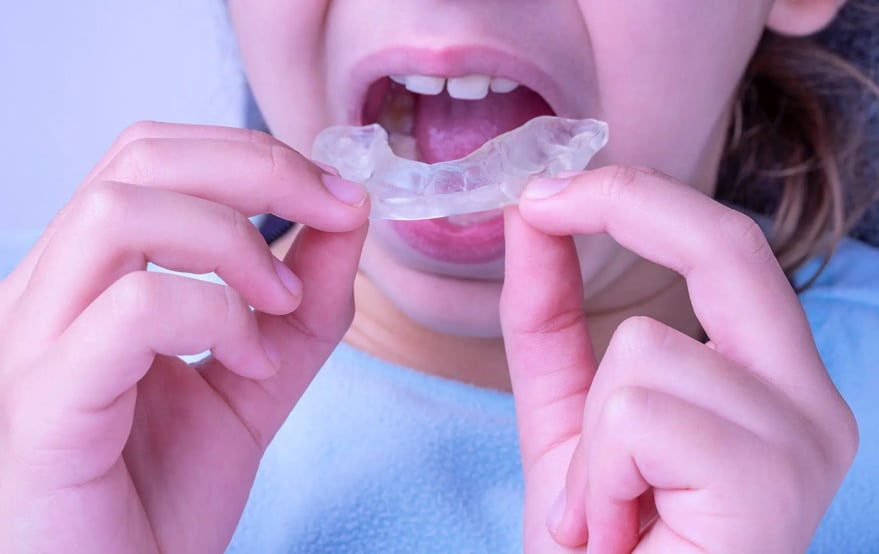Google Rating
4.8
Based on 126 reviews
Bay Street Dental Group - Invisalign & Emergency Dentist
4.8
Amit Suvarna
1713827123
Exceptional service! Dr. Sejal Dhokia is truly remarkable, showing great care and empathy. She provided excellent guidance and support throughout my visit. The staff, including Dr. Sejal, were incredibly kind and compassionate. Highly recommend this clinic!
Kate Meldrum
1713170888
Milton and team are the best dentist professionals I have ever experienced and I have experienced many of them ! Care,speed, brilliant work and conscious that a visit to the dentist is not always cheap !
Adriana Watson
1712033806
Incredible level of care snd always welcoming. I’m very glad I came across Bay Street Dental and dentist, Michael.
Oksana Andrushchenko
1710211900
I had a wonderful experience at Bay Street Dental Group (Port Melbourne). The staff were friendly, the facility was clean, and my dentist, Dr Sejal Dhokia, was knowledgeable and professional. I highly recommend them!
David Dennerley
1709031168
Have been going to Bay Street Dental group for many years now. Michael and the team are very professional and run an excellent clinic. Highly recommend
Peta Rak
1707470589
The whole team is very personable and go out of their way to make you comfortable. Thorough and gentle approach to our family's dental care.
Marshy Maxilom
1707372344
Giving them 5 star as they were very welcoming & nice. I really appreciate that they setup a payment plan for me as I couldn't afford to pay full. Dentist Gary was very patient and kind, & the three ladies that I didn't get the names. Highly reco this clinic!
Jeff Penberthy
1701129704
As per earlier experience, I received excellent professional service, and wonderfully friendly and efficient front counter as always.
George Karantzas
1701066640
They booked me in on short notice due to severe pain, waited less than 2 mins in the waiting room, in and out in 15 mins, solid advice, took care of me in terms of diagnosis and recommend actions. Couldn't be happier
Nicole Gillard
1700896933
Been our family dentist for years, always so accommodating, friendly and very professional.
Tania Yorgey
1699062047
I feel very taken care of and knowledgeable about what is in my best interest moving forward. Thanks to all the staff.
Gail Bousi
1698440266
Staff are so friendly and made me feel relaxed and comfortable.Gary is the best dentist!
Stephen Lazar
1698130458
Completely Professional, caring and a wonderful team at Bay Street Dental Group. Hard to say go to a dentist :-) but if you have to, my regard for them remains very high. Comfortable to recommend them !!
maike wolf
1697069386
All staff at the clinic are very friendly and caring which is why I am still attending this clinic even though I've moved away from the area 3 years ago. Even my kids love going to the dentist!
TAWFIK ADAM
1688635049
Experienced dentist with kids I recommend to families helpful staff kids love em 🙏🏽
Chris Germon
1686986655
Great experience after a late notice urgent booking. The dentist was thorough and told me everything
Frances Caratozzolo
1686901248
I have been to many dentists and have found a group of dentists that are super amazing.All of them are extremely helpful and professional, but dr Gary stands out with his straight forward approach and honesty. I know my teeth are bad and slowly we are fixing them one by one ..thank you for your time and patience...
Nick Papas
1686745095
Very caring and professional serviceI’m generally a little anxious with dental procedures, however the two female dentist that treated me today were 5 star ⭐️
Daniel Arfi
1686048312
Very good dentistry, highly recommend this practice and care provided by Dr Milton and the team. Top marks for hygiene, care and experience. I would suggest one of the best in Melbourne.
Denise Johnstone
1671409366
Oh my..one word PHENOMENAL! I’d had several bad experiences with dentists and recently knew and old tooth would need extracting. My first examination visit to the Bay Street clinic- the nurses were amazing at calming me and Gary was ever so reassuring about my extraction appointment. I’m highly sensitive, so got incredibly stressed prior, but on the day yet again all staff were so attentive & reassuring. Making me feel genuinely cared for and not silly for being so anxious. I’d seriously give 6 stars if I could. HIGHLY RECOMMENDED👌🏼🥰
Leigh Davie
1669936843
Love the direct but very gentle approach of the dentists. I never feel that I am being upsold in any way and I always feel assured that I am in experienced hands which takes away the anxiety. The dental assistants & support team are just wonderful. Caring and competent. I have been going to Bay Street Dental for many years and will not go anywhere else.
Alex Virr
1668152104
Lovely people and made me feel calm about my dental appt even though I was very anxious before going in. Will be back.
Marie Pollard
1666934119
Dr Nish is the best dentist I have been to. I have been to her several times now for both routine cleans and emergency broken tooth . Each time Dr Nish was extremely competent but also very kind to me . I would recommend this practice - and particularly Dr Nish to anyone. Exceptional!
Ohnmar McDonald
1663055961
My 12 yr old son is petrified of the dentist and we decided to come here to try someone new. Dr Nguyen was fantastic and so patient with him. We had the best experience we’ve ever had at the dentist! Everyone was very friendly too. Highly recommend the place.
Nick Taylor
1659308653
Very friendly and efficient service. Great at communication. Would definitely recommend to others.
Sara Hughes
1658971857
Nish was amazing, very thorough and easy to understand. Great overall experience.









